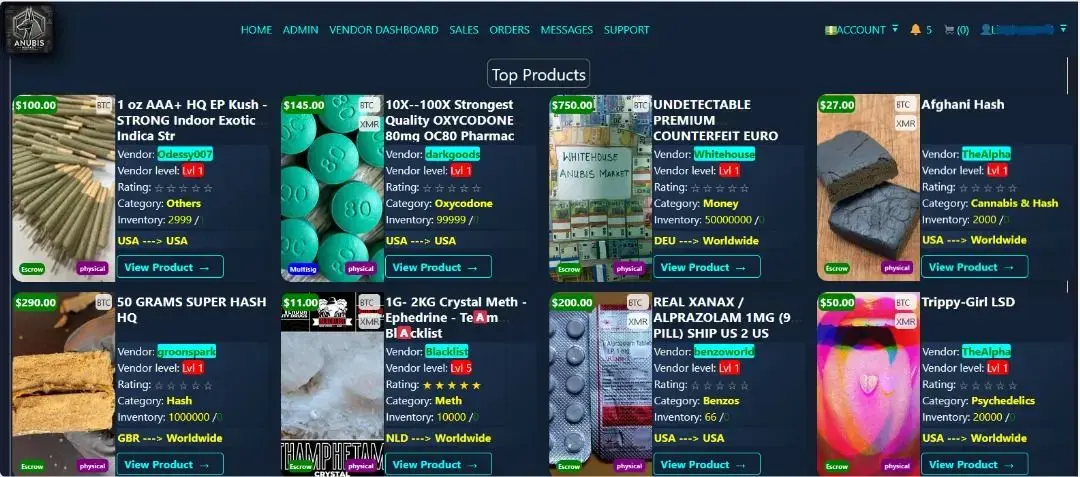What is Anubis Market?
Anubis Market has emerged as one of the prominent darknet marketplaces in 2025, offering users a secure platform for conducting anonymous transactions. Named after the ancient Egyptian god of the afterlife, Anubis Market embodies the principles of protection and guidance through the complex landscape of darknet commerce. The marketplace operates exclusively on the Tor network, ensuring that all user activities remain private and untraceable.
The platform distinguishes itself through its commitment to user security, implementing military-grade encryption protocols and supporting privacy-focused cryptocurrencies such as Bitcoin and Monero. Anubis Market features a comprehensive escrow system that protects both buyers and vendors, ensuring that transactions are completed fairly and disputes are resolved impartially. With 24/7 customer support and a user-friendly interface, the marketplace has attracted a diverse community of vendors and buyers seeking reliable darknet services.
Understanding Darknet Markets
Darknet markets, also known as cryptomarkets, are online marketplaces that operate on encrypted networks such as Tor. These platforms emerged in 2011 with the launch of Silk Road, revolutionizing the way illicit goods and services are traded online. Unlike traditional e-commerce sites, darknet markets prioritize user anonymity and privacy, utilizing sophisticated technologies to protect both buyers and sellers from surveillance and identification.
The architecture of darknet markets is built upon several key technologies. The Tor network provides the foundation for anonymous communication by routing internet traffic through multiple encrypted relays, making it extremely difficult to trace users' real IP addresses. Cryptocurrencies, particularly Bitcoin and Monero, enable financial transactions without revealing personal banking information. PGP encryption ensures that sensitive communications remain private even if intercepted.
Modern darknet markets have evolved significantly since the early days of Silk Road. Today's platforms incorporate advanced security features such as multi-signature escrow systems, decentralized hosting, and sophisticated reputation mechanisms. These improvements have made darknet markets more resilient to law enforcement actions and exit scams, though risks remain inherent to operating in this space.
The Evolution of Darknet Marketplaces
The history of darknet markets began in February 2011 when Ross Ulbricht launched Silk Road, a platform that demonstrated the viability of anonymous online commerce. Silk Road operated for over two years before being shut down by the FBI in October 2013, but its success inspired dozens of successor markets. The closure of Silk Road did not end darknet commerce; instead, it sparked an era of rapid innovation and proliferation of alternative marketplaces.
Following Silk Road's demise, markets such as Silk Road 2.0, Evolution, Agora, and AlphaBay emerged to fill the void. Each generation of marketplaces introduced new security features and operational improvements. AlphaBay, which operated from 2014 to 2017, became the largest darknet market in history before being seized by international law enforcement. The takedown of AlphaBay and Hansa Market in 2017 represented a significant victory for authorities, but once again, new markets quickly emerged to replace them.
The darknet market ecosystem has demonstrated remarkable resilience over the past decade. Despite numerous high-profile seizures and arrests, the total volume of darknet commerce has continued to grow. Markets have become more sophisticated in their security measures, implementing features such as decentralized hosting, cryptocurrency tumblers, and advanced operational security protocols. This ongoing cat-and-mouse game between law enforcement and marketplace operators has driven continuous innovation in privacy-preserving technologies.
